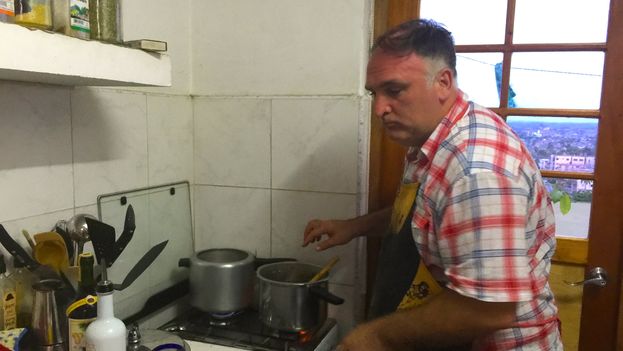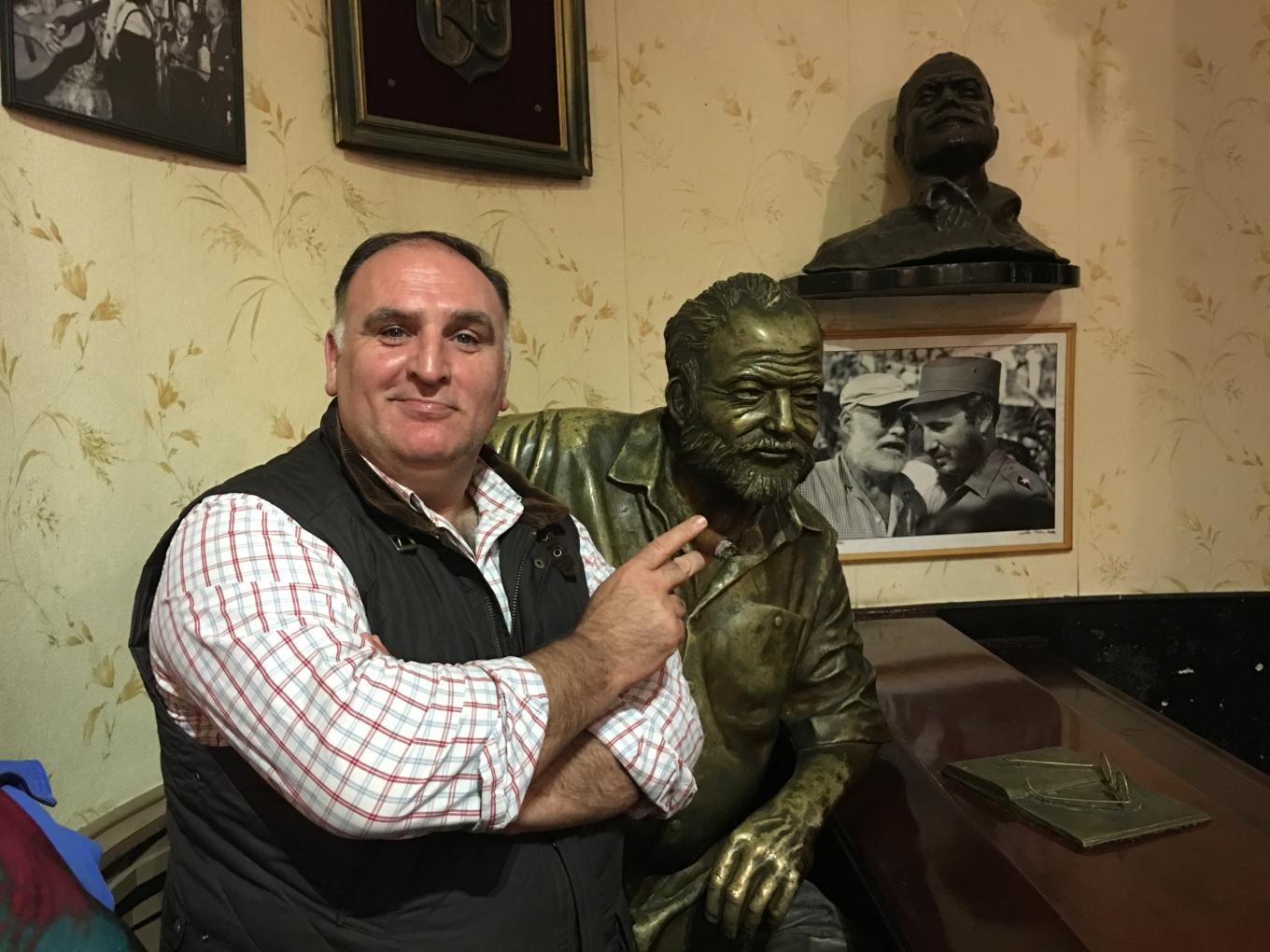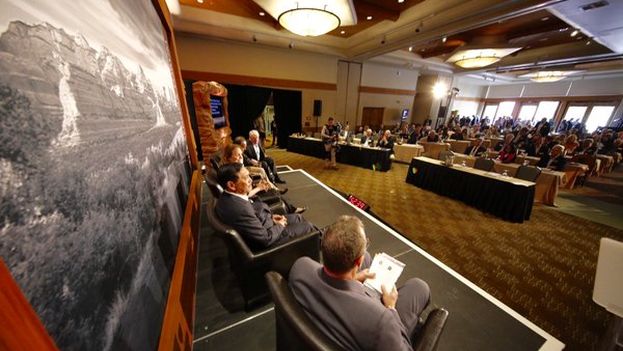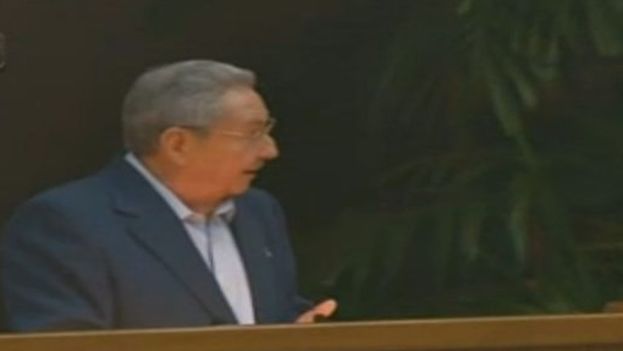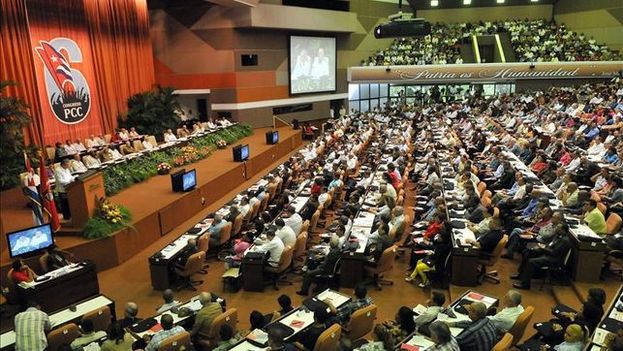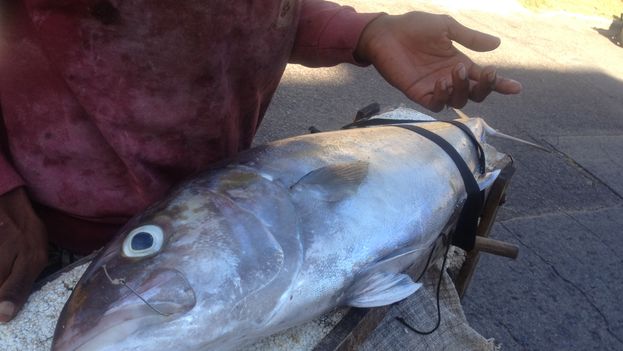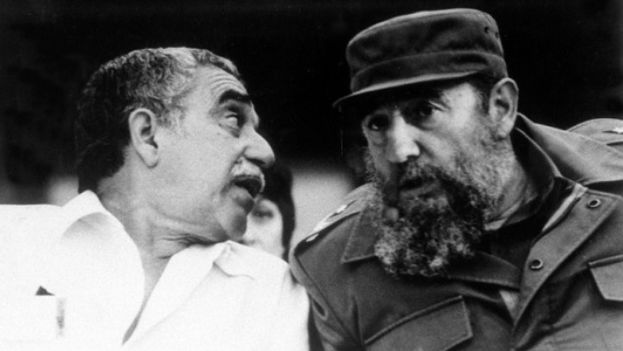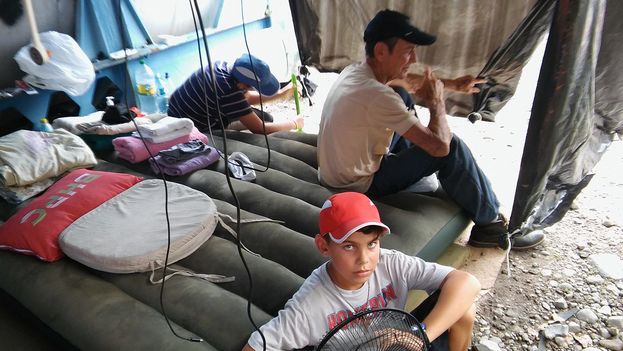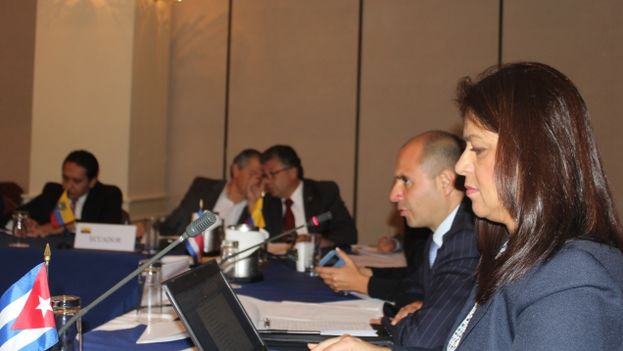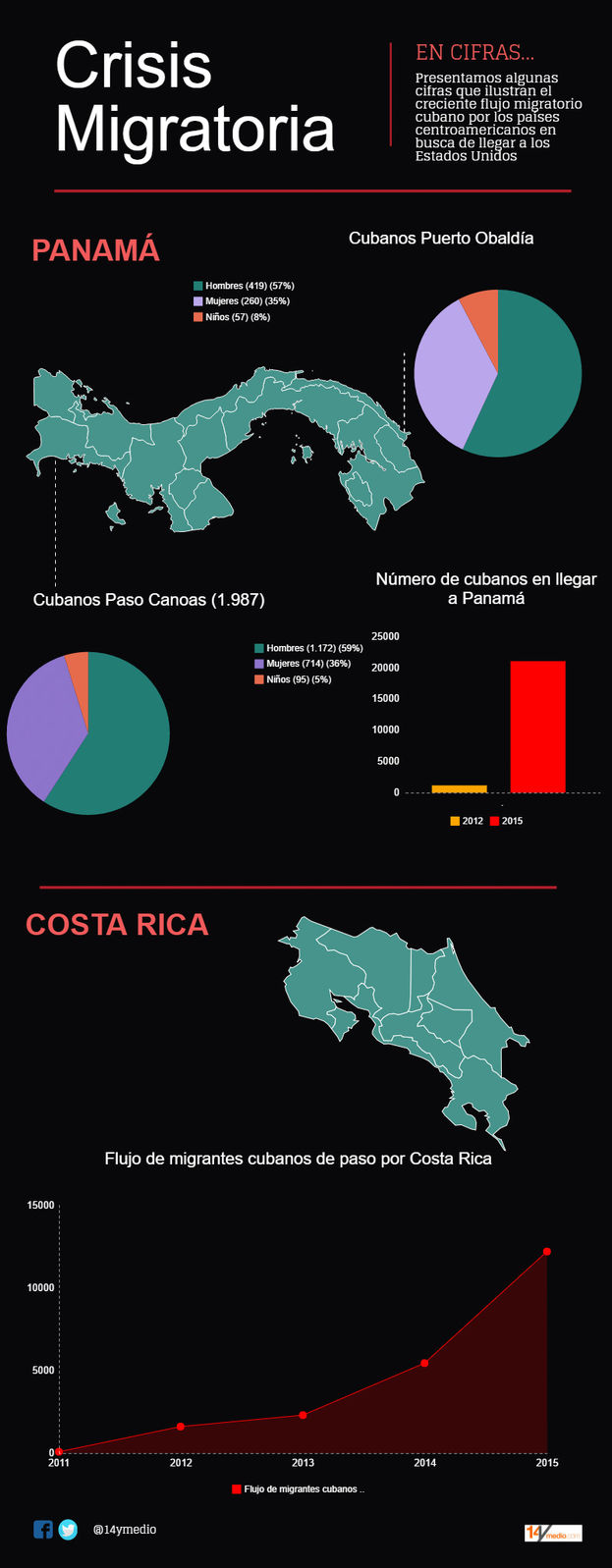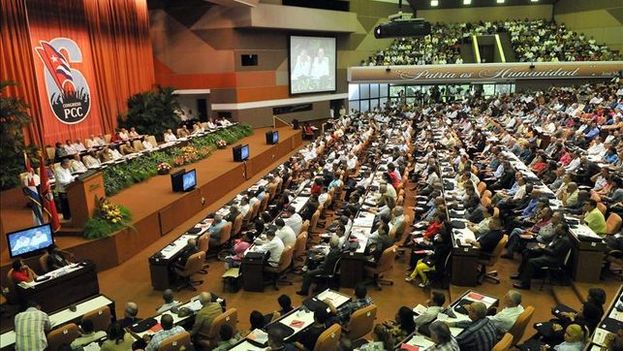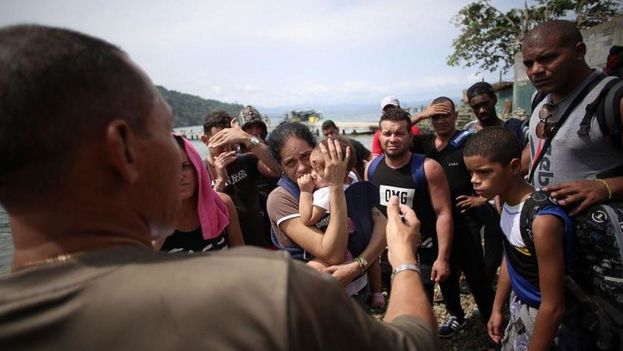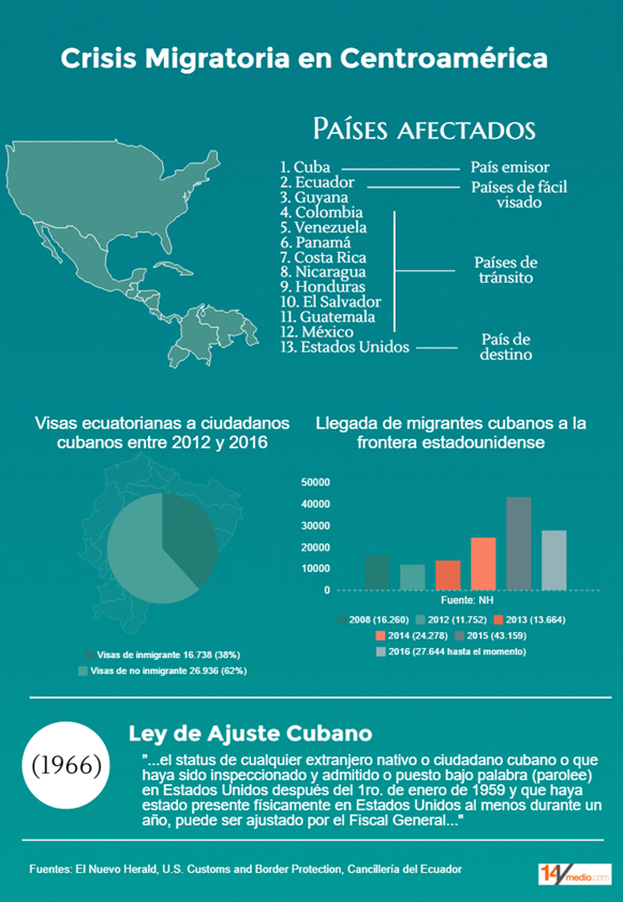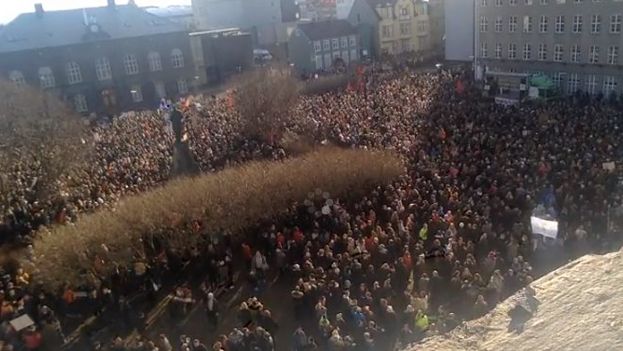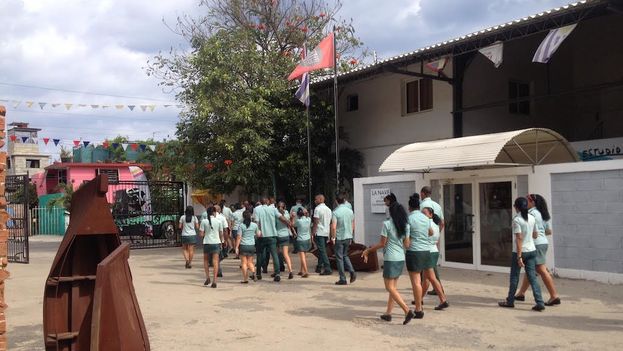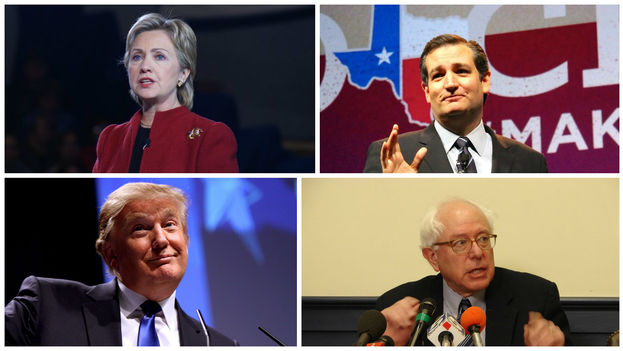14ymedio, Jose Andres, Washington, 17 April 2016 — I was smiling. My sunglasses were lying beside the book on the bar. I turned around, as if I were coming back to reality, when I felt a hand on my back. I had just finished my sixth daiquiri in less than half an hour. The waiters serve them faster than you can drink them. Even so, I was not going to return to reality. I was just another tourist vying for a highly sought-after picture with Ernest Hemingway. I was a trophy hunter, trying to take a selfie, set on getting close to his statue in the corner of El Floridita bar.
El Floridita is a nearly 200-year-old institution of colonial Havana. I felt more excited there than usual. I could hear the music of my anxiety fill the air; the type of music Steinbeck talks about in The Pearl, that describes situations that words cannot. continue reading
El Floridita is now a tourist attraction. Still, I was delighted to enjoy the same setting that Hemingway did seventy or eighty years ago. The bar was full. Live salsa music filled the air. A few tourists, who did not have even one drop of rhythm flowing through their veins, were in denial about their dancing. Silly people. Decadence. What I really could not understand was how people could line up at the bar drinking daiquiris with a straw. A straw? Could you imagine Hemingway ever using a straw to drink a daiquiri? Never.
I raised my hand. Fidel, the bartender, was more than willing to please me with my seventh daiquiri. I took the straw out and asked him to add a little of the best rum they had. Fidel then poured a beautiful dark brown molasses-smelling liquid on my pale frozen citric daiquiri. I carefully lifted the glass to my lips and took a sip. That is how you are supposed to drink a daiquiri at El Floridita.
El Floridita’s chef finally arrived with a plastic bag. I had asked him to sell me some Brie, blue cheese, and a bottle of virgin olive oil. These ingredients are not easy to come by in Havana, so therefore, it was best if I asked a cook. But he has brought me something more than I expected. When I looked in the bag, I saw lobster tails. I then took another drag from my Cohiba Behique cigar. It was my fourth cigar that day, and it was only 6:00 PM.
I smoked three more cigars at the baseball game. Cuba and the United States were becoming friends through sport. It was a historic moment, a great moment. Perhaps this signals a change in the lives of many people. The joy was so intense that you could feel it.
I again glanced at the lobsters, and then took a sip of my daiquiri. Yoani Sánchez, my accomplice and host for that evening’s dinner, had asked me not to bring anything. She said: “It’s better that way.” What did she mean by that? During the last four days I had been trying to reach her. In the best of cases, Wi-Fi in Havana is spotty. When they do work, communication devices are very slow. That is why two days earlier I ventured late at night to her apartment in a fourteen-story concrete high-rise in the far off the tourist track Nuevo Vedado neighborhood. I decided to try my luck. It was 11:00 PM, and the street was dark. It was a fourteen-story building. I had no luck because no one opened the front door. After thirty minutes, no one came in or out. Since I was not able to call Yoani, I had no access to the elevator that would take me to her home and office. So I left.
Yet today was different. Now I had an invitation and a specific time I should be there. I grabbed the two plastic bags, the cheeses, the olive oil, and the lobster, and stored it all in my black backpack. I sipped my last daiquiri, and kissed my cigar goodbye.
I got in a taxi. I thought it best not to call any attention, so I wore the Cuban national baseball team t-shirt, with its beautiful shade of blue. I was also wearing a baseball cap. When we finally got to Yoani’s street, I told the driver to let me off where it starts off. “I’m going by foot,” I said. I wanted to walk. I wanted to get there on my own. But I did ask him to wait for me. Yet for how long? Maybe thirty minutes or a few hours, since I was not sure. I left a bag of t-shirts I bought for my daughters with him. That is how trust works: when you show it, it is reciprocated.
Protruding overgrown tree roots have cracked the sidewalks over the years. This is a good indicator of who is in charge of things. I twisted my ankle. I felt the pain for a second, but the excitement served as a good antidote. I suppose the daiquiris helped too.
At last, I arrived. I saw a man heading towards the door, and I followed him in and entered the elevator. I was going to the fourteenth floor, but there were only thirteen numbers. I did not want to ask why. I wanted to appear as if I were from there, especially after hearing so many stories about the police, informants, and dissidents thrown in jail.
My host Yoani is an independent journalist. She is renowned for her ability to use technology to let the world know what is happening in Cuba. Once I was on the thirteenth floor, I saw a narrow staircase leading to the fourteenth. Wonderful! The fourteenth floor did indeed exist. I reached a locked metal door, and rang the bell. A man came out and asked: “Are you José?” Was that the password? I said I was. Although we had never met, he opened the door, and gave me a bear hug, as if I were a long-lost friend.
I finally entered the apartment. Yoani was there, and all of her staff broke out in applause. I had met Yoani only a year earlier in Washington, D.C. Her stories about Cuba, her fight for freedom, and the difficulties that Cubans have to endure everyday in order to survive all resonated in my mind. I had promised to visit her someday, and I was finally there. Yet I was not in an apartment. It looked more like a newsroom.
I did not understand why all the applause. Perhaps it was due to the pictures I had sent Yoani from Obama’s entourage, since I had been invited on the trip as an official culinary ambassador. Or maybe it was the photos of business leaders with Obama, among others, that I had also sent her. These pictures were not sent directly to Yoani. Instead, they were forwarded to Miami, and somehow, they made it back to Cuba. I was counting on the idea that dining at Yoani’s during Obama’s visit would give me a different perspective on these events. Still, I felt like I was just visiting an old friend.
Yoani and her team kept moving in and out. The air smelled of baked chicken and oregano coming from three small chickens in the oven. The seemingly endless conversation went from one topic to another, from family matters to paladares, from Obama to beer, to ice… I prepared a soup of oats, Brie, chicken stock, and powdered chicken soup. Yoani explained that Cubans like big portions. They are hungry and stressed. So whenever they can, Cubans like to feast.
Yoani had just finished making a waffle in an electric waffle iron. Since it is such a small kitchen, creativity is a necessity. Still, a waffle at 8:00 PM? So I asked “Why not bread?” The staff replied: “There’s no time for bread. We’re too busy.” This was true, since Yoani had just interviewed Ben Rhodes, Obama’s national security advisor. It had been a very important day for her. She had gone from dissident to being in the presence of a man very close to the President. Yoani told me that she had even dared to ask Obama for an interview. “If you don’t dream, you don’t accomplish anything,” she said.
The 14ymedio staff was indeed hungry. They devoured the Brie and Blue Stilton cheeses I placed on the table.
There were only two waffles. I dressed them with margarine, the blue cheese that was left over, olive oil, salt, and pepper. I used the salt Yoani brought back from her last trip to Washington. She is proud of all the spices she has. Not all Cuban households are that lucky.
The pizza waffle was just too small, and we had no flour or eggs to make more batter. Still, the team seemed to like what we had. In Cuba we like big portions, José. But there was not much more I could do. There was only one Jesus Christ.
The chicken was ready. I cut it up in small portions, and sprinkled it with oregano and its cooking juices, and I brought it to the table. Everyone in the room was smoking, drinking rum and beer, and chatting.
Next, I served a dish made from the lobster I had brought with me. I used the part of the tails closest to the lobster head. I dressed it lightly with olive oil, chopped lettuce, and vinegar. I was lucky. The 14ymedio team thought they had nothing to cook, but I am a kitchen survivor. I learned how to work with a small kitchen on a ship of the Royal Spanish Navy, without gas, without ingredients… We cooks are like Jesus Christ. We can multiply anything.
It was time to put the frying pan with the leftover grease in the sink. However, the chicken juice and the burnt skin stuck to the bottom were ingredients that had to be saved. I relit the stove, added a glass of rum, and scraped the bottom of the pan. I added the tomato paste that was guarded as if it were a consecrated communion host. I added water and I let it boil. There was a little chicken broth left. I added the water left over from the lobster ceviche. A pinch of garlic. The pasta was ready. Half an hour earlier, I had been frying spaghetti in the pan. If one is not careful, it tends to burn. The stove seemed to give off a live flame, under control, and well mannered; a soft flame, like a whisper. As I toasted the pasta, Yoani told me about an article on Obama’s arrival in Cuba. Since it was a rainy day, he exited Air Force One holding his own umbrella, as he sheltered himself as well as Michelle from the rain. This is in marked contrast to Cuban government officials, who have others hold their umbrellas for them. This is another example of what freedom is like.
My dish was ready, or so I thought. I assumed it was the worse one I had ever made.
I put the toasted pasta and the small lobster medallions in the oven so the top part would be crunchy. If anyone saw me do this in Catalonia or Valencia, I would end up in jail. Nevertheless, on that long, messy table, full of dishes holding chicken, glasses of rum, and beer cans, we made room for the platter.
It was well received. We talked about how Cubans can end up in jail if they are caught with lobsters. Lobster trawlers are not allowed so that no one can escape the island. They would be too much of a temptation. The diners ate everything on their dishes. My cook’s ego was saved. This time, no one mocked me with that same old mantra, “Cubans like big portions, José.”
Yet the evening was not over. Yoani enjoys the drink I made for her last year in Washington. Called “cremat,” its ingredients are coffee grains, cinnamon, lemon peels, and rum that has been lit on fire. However, there were no lemons or limes, an oddity in a climate perfectly suited for citrus fruits. I suddenly felt guilty when I thought about how many limes were used for my daiquiris. So then I went on to narrate the story of the Catalonian sailors who returned home after the war between Spain and the United States in Cuba, and other places.
Spain may have lost the war, however, special drinks and traditions were created because of it. I started singing a Habanera, which in Catalan goes “El meu avi se’n va anar a Cuba…” (“My grandfather went off to Cuba…”). And by the light of the burning rum, we all sang together.
Editorial note: In 2011, the James Beard Foundation named José Andrés the nation’s most outstanding chef. Time Magazine has called him one of the one hundred most influential people in the world. Mr. Andrés is a globally recognized culinary expert.
Translated by José Badué.
